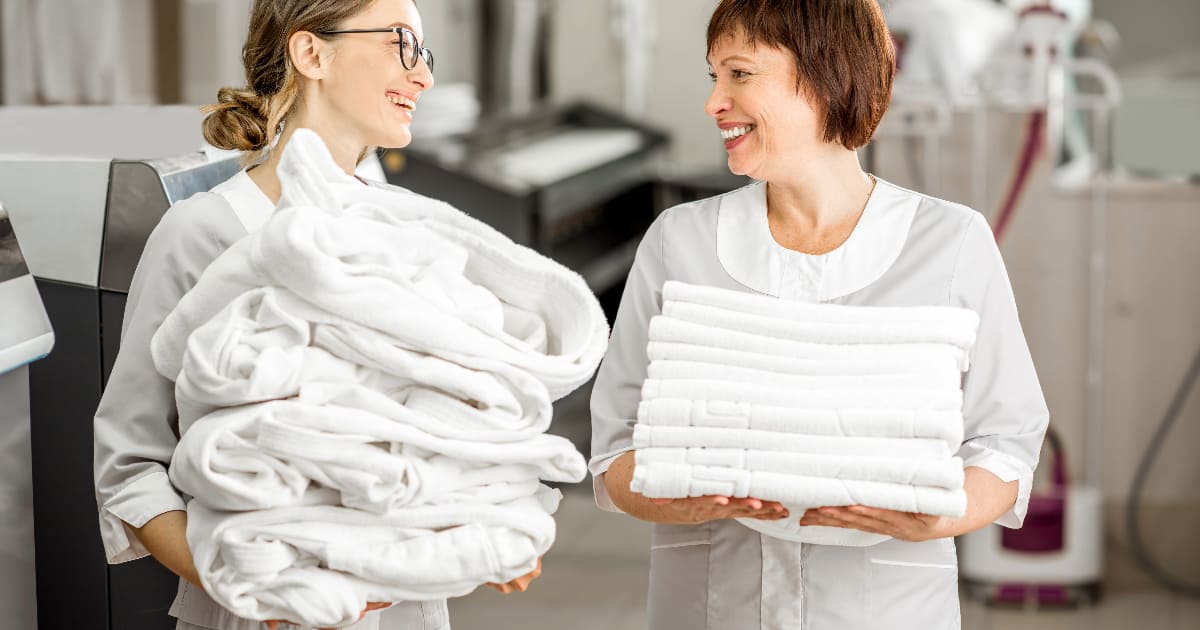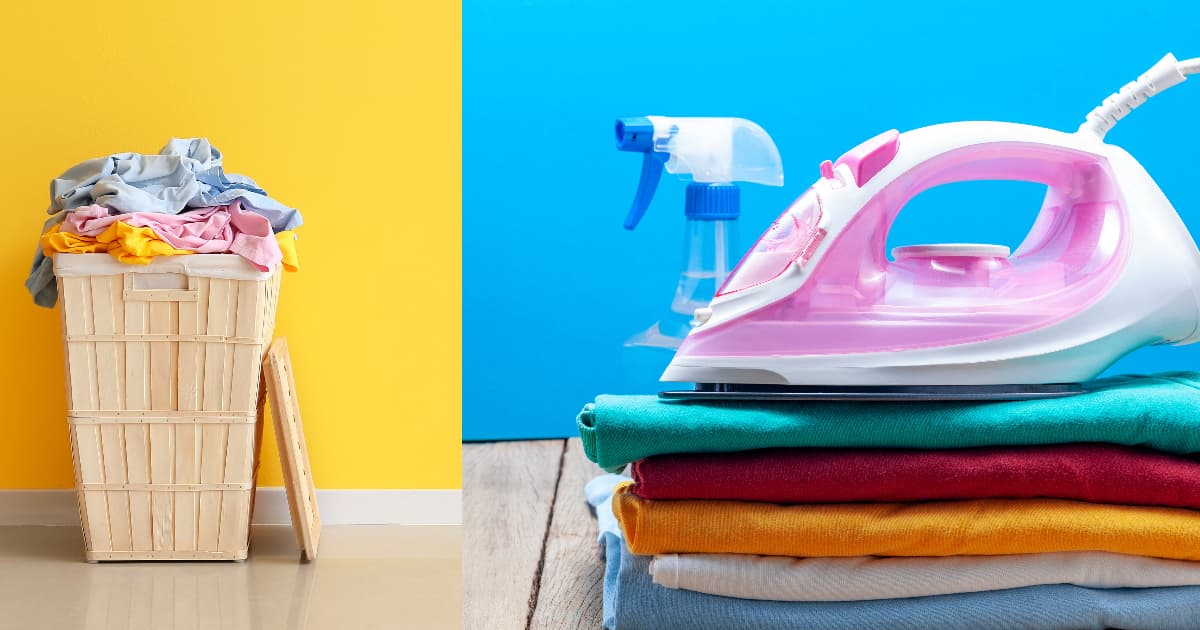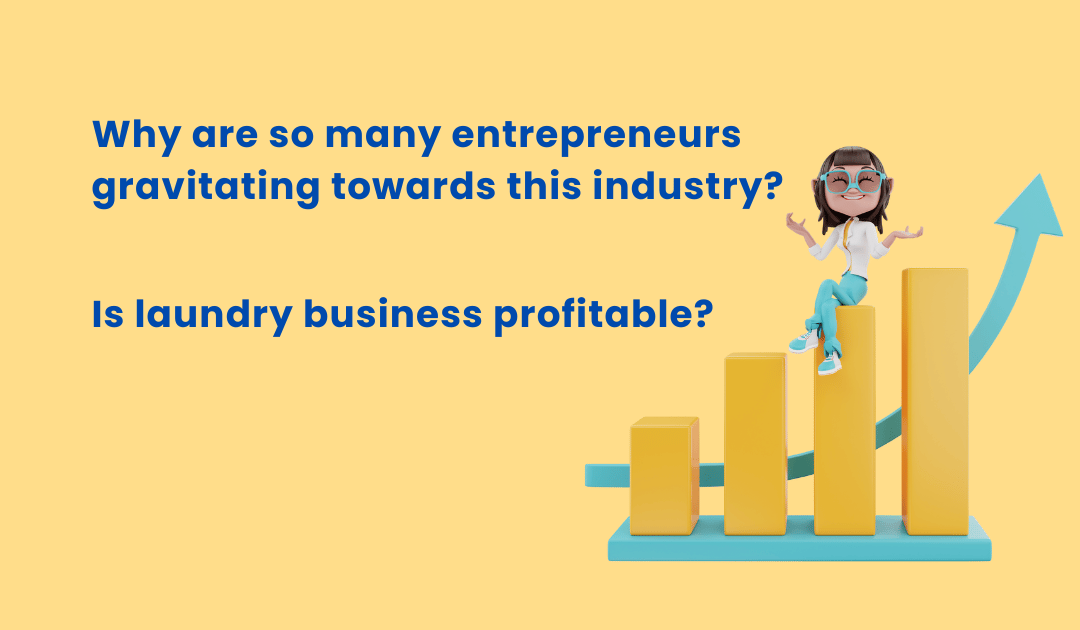Welcome, aspiring entrepreneurs! If you’re reading this, chances are you’ve recognized the growing demand for laundry services in the bustling cities of the Philippines.
From the busy streets of Manila to the vibrant neighborhoods of Cebu City, the laundry business has become an integral part of urban living. But is it the right venture for you?
Having spent over a decade managing large-scale laundry operations across major cities like Quezon City, Makati, and Davao City, I’ve witnessed the highs and lows of this industry.
The allure of starting a laundry business is undeniable, but like any venture, it comes with its set of challenges and rewards.
Whether you’re a seasoned entrepreneur looking for your next venture or a newbie eager to dip your toes into the business world, this guide is tailored just for you.
We’ll delve deep into the lifecycle of a laundry business, from the initial market research to the day-to-day operations and future prospects.
Along the way, I’ll share insights, tips, and strategies that I’ve garnered from my years in the field.
Table of Content
So, are you ready to embark on this exciting journey? Let’s unravel the mysteries of the laundry business in the Philippines together. Read on to discover if this is the golden opportunity you’ve been searching for!
Introduction:
Have you ever walked through the bustling streets of Manila or Cebu City and noticed the increasing number of laundry shops? It’s not just your observation. The laundry business in the Philippines is experiencing a significant surge in interest.
With the fast-paced urban lifestyle, more and more Filipinos are seeking convenient solutions for their laundry needs, making it a lucrative venture for many.
But here’s a question to ponder: Why are so many entrepreneurs gravitating towards this industry? The answer lies in the unique blend of demand, convenience, and profitability.
As cities grow and time becomes a premium, services that offer convenience, like laundry shops, become indispensable.
However, while the allure of starting a laundry business is undeniable, it’s essential to tread with caution. Understanding the intricacies of the industry is paramount.
It’s not just about washing clothes; it’s about understanding market dynamics, customer preferences, operational challenges, and more.
Diving headfirst without adequate knowledge can lead to pitfalls, missed opportunities, and even business failure.
So, before you take that leap, let’s embark on a journey to understand the laundry business landscape in the Philippines.
Whether you’re a seasoned entrepreneur or a newbie, this guide aims to provide valuable insights, ensuring you make informed decisions every step of the way. Are you ready to dive deep?

The Lifecycle of a Laundry Business in the Philippines
Starting a laundry business in the Philippines is more than just buying machines and opening a shop. It’s a journey that requires meticulous planning, understanding of the market, and strategic investments. Let’s delve into the initial phases of this journey.
Phase 1: Market Research and Feasibility Study
Before you even think of purchasing your first washing machine, it’s crucial to understand the landscape you’re entering. Market research is the foundation of any successful business venture. How and Why to Define Target Market for Laundry Business
- Understanding the Local Market: The Philippines, with its diverse regions and cities, offers varied market dynamics. For instance, a laundry shop in Manila might face different challenges and opportunities compared to one in Davao City. Factors such as population density, competition, and local habits play a role.
- Identifying Target Customers: Are you catering to busy professionals, students, or households? Identifying your target audience helps in tailoring services, pricing, and promotional strategies.
Phase 2: Planning and Initial Investment
Once you have a clear understanding of the market, the next step is planning and making the initial investments. This phase sets the foundation for your business operations. Find Types of Laundry Business Models
- Deciding on the Business Model: Do you want to offer self-service, where customers operate the machines themselves? Or a full-service model where you handle everything? Perhaps a hybrid of both? Your decision will influence the setup, staffing, and even the initial capital required.
- Estimating the Initial Investment: This is one of the most common questions: How much is the initial capital for a laundry business in the Philippines? The answer varies based on location, size, and services offered. Costs include equipment, rental space, utilities, and initial marketing efforts. It’s essential to have a clear financial plan to ensure profitability in the long run. Profitable Laundry Business Marketing Plan
Phase 3: Launch and Operations
With the planning phase behind you, it’s time to open the doors of your laundry shop. But the real challenge begins now: running the business efficiently and ensuring customer satisfaction.
- Day-to-day Operations and Management: This involves everything from managing staff shifts, ensuring the machines are in optimal condition, to handling customer inquiries and feedback. Efficient operations are the backbone of a successful laundry business. It’s not just about washing and drying; it’s about ensuring timely service, managing resources, and addressing any unforeseen challenges that arise. Customer Testimonials to Build Trust and Credibility
- Quality Control and Customer Service: In the laundry business, quality is paramount. Stains should be removed, clothes should be returned without damages, and items shouldn’t be lost. Implementing strict quality control measures can help in achieving this. Moreover, excellent customer service is crucial.
Phase 4: Growth and Expansion
Once you’ve established a foothold in the market and have a steady customer base, it’s time to think about the future. Growth is essential for any business, and the laundry industry is no exception.
- Scaling Up: There are multiple avenues for growth in the laundry business. You could consider franchising, allowing others to open branches under your brand name. Alternatively, opening new branches in different locations or even diversifying services, like offering dry cleaning or home pickup and delivery, can boost revenues.
- Adapting to Market Changes and Trends: The business landscape is ever-evolving. New technologies, changing customer preferences, or even global events can influence the laundry industry. Being adaptable and staying updated with the latest trends is crucial. For instance, with the rise of eco-conscious consumers, offering eco-friendly washing options could be a game-changer.
Profitability Analysis
One of the most pressing questions for any aspiring entrepreneur is: Will my business be profitable? In the laundry industry, especially in the Philippines, the potential for profitability is significant.
But it’s not just about revenue; understanding the factors that contribute to profitability and setting realistic ROI expectations is crucial.
Factors Contributing to Profitability:
- Operational Efficiency: Minimizing wastage, optimizing staff shifts, and ensuring machines run at optimal capacity can significantly reduce costs.
- Strategic Pricing: Pricing shouldn’t be based solely on competition. Understand your costs, the value you offer, and price your services accordingly.
- Volume: In the laundry business, volume often compensates for slim margins. Offering promotions during off-peak times can boost volume.
- Additional Services: Diversifying into related services, like dry cleaning or ironing, can increase the average ticket size and boost profitability.
How Profitable Is Laundry Business In Philippines?
The laundry business in the Philippines has shown to be quite profitable, especially in urban areas. With many Filipinos lacking access to personal washing machines, laundromats become essential. On average, laundromats charge around PHP 20-30 per kilogram of clothes.
Return on Investment (ROI) Expectations:
The laundry business, especially in urban areas of the Philippines, can offer attractive ROI. However, it’s essential to set realistic expectations. Understand Break-Even, ROI Analysis in Laundry Business
Initial investments in equipment, space, and marketing can be substantial. But with efficient operations and a growing customer base, most laundry businesses can expect to break even within the first year.
From there, with strategic growth initiatives, the ROI can be substantial. Remember, it’s not just about the immediate returns but the long-term value and growth potential of the business.
Proven Practices to Increase Profit in Laundry Business
How can I make my laundry business profitable?
Profitability hinges on quality service, effective marketing, and efficient operations. Embrace eco-friendly practices, leverage technology, and understand local dynamics, especially in cities like Manila and Cebu City.
What is the key to success in the laundry business?
The key is consistent quality, customer-centric services, and adaptability. In the Philippines, understanding local culture and preferences, especially in urban centers, is crucial.
Download Your Free
Digital Marketing Plan Template
Build a practical, strategic marketing plan that generates more web traffic, leads and Conversions. Reach Your Target Audience Where They Are and Drive Sales Like Never Before

Steps to Start a Laundry Business in the Philippines
Embarking on the journey of starting a laundry business in the Philippines is both exciting and challenging. While the potential for success is significant, the path to achieving it requires careful planning and execution.
Here are the essential steps to set you on the right track:
Location Selection:
The old adage, “Location, location, location,” holds especially true for the laundry business. A prime location can significantly boost foot traffic. But it’s not just about being in a busy area. Accessibility is crucial.
Consider places near residential areas, schools, or offices. A unique viewpoint here is to also consider the ease of parking or proximity to public transport.
In cities like Manila or Cebu, where traffic can be a challenge, ensuring customers can easily drop off and pick up their laundry can give you a competitive edge.
Licensing and Permits:
Before you start operations, ensure you have all the necessary licenses and permits. This includes business registration, barangay clearance, and environmental clearances, especially since you’ll be dealing with detergents and chemicals.
A piece of advice from someone who’s been in the industry for over a decade: always stay updated with local regulations. Changes can happen, and being compliant ensures your business runs smoothly without legal hiccups.
Equipment Selection and Setup:
The heart of your laundry business lies in the equipment. While it might be tempting to go for the cheapest options, consider the long-term.
Investing in high-quality, energy-efficient machines might have a higher upfront cost but can save you money in the long run. Moreover, customers often associate the quality of the machines with the quality of the service.
A unique perspective? Consider machines with eco-friendly features. With the rising trend of sustainability, this can be a unique selling point for your business.
Hiring and Training Staff:
Your staff will be the face of your business. Hiring individuals with a service mindset is crucial. But beyond that, invest in training. Ensure they understand the intricacies of stain removal, fabric care, and machine operations.
A well-trained staff not only ensures efficient operations but also reduces the chances of errors, leading to satisfied customers. A piece of insider advice? Regularly hold refresher training sessions and encourage feedback.
The laundry industry might seem static, but new techniques and products emerge. Staying updated ensures you offer the best to your customers.
Initial Investment Breakdown
Starting a laundry business in the Philippines, like any other venture, requires a significant initial investment. Understanding where your capital will be allocated can help in budgeting and setting financial expectations. Here’s a breakdown:
- Cost of Equipment: The heart of your laundry business. Investing in high-quality machines ensures efficiency and customer satisfaction. As per the data, washing machines can range from PHP 12,500 to PHP 102,500, while dryers can vary between PHP 10,000 to PHP 88,750. A unique viewpoint? Consider energy-efficient machines. They might cost more upfront but can save on electricity bills in the long run.
- Rental or Property Purchase: Location is crucial. While renting in prime locations can be expensive, it can boost foot traffic. Purchasing property is a significant investment but offers stability. Remember, the cost varies significantly between cities and neighborhoods.
- Operational Costs: These are recurring expenses, including utilities like water and electricity, salaries for your staff, and supplies like detergents and fabric softeners. Efficient management can help in reducing these costs over time.
- Marketing and Promotional Expenses: Especially crucial during the launch phase. Investing in marketing ensures your target audience knows about your services. This can include online advertising, flyers, or even promotional offers for the first few customers.
Trusted | Affordable Digital Marketing for Laundry Business
Best Google Ads (PPC) Specialist | Scale your Sales, Leads
How Much Capital Do You Need To Start A Laundry Business?
The initial capital required can vary based on location, size, and services offered. Typically, starting a laundry business can require anywhere from PHP 1,200,000 to PHP 5,000,000. This includes equipment, rental or property purchase, operational costs, and marketing expenses.
How Much Does Laundry Machine Cost?
Washing machines can range from PHP 55,500 to PHP 102,500, while dryers can vary between PHP 22,000 to PHP 88,750. The cost largely depends on the brand, capacity, and features of the machines.
Is Owning A Laundry Business Worth It?
Yes, owning a laundry business in the Philippines can be worth it, given the high demand for such services. With an average cash-on-cash ROI of 20% to 35%, it offers a lucrative opportunity, especially when managed efficiently.
Future Prospects of the Laundry Industry
Having been immersed in the laundry industry in the Philippines for over a decade, I’ve witnessed its evolution firsthand. The future, from where I stand, looks promising, but it’s also set to be different.
Here’s a glimpse into what the next decade might hold for entrepreneurs in this space:
The Rise of Eco-Friendly and Sustainable Practices:
The global shift towards sustainability is making its mark in the laundry industry too. Consumers are becoming more conscious of the environmental impact of their choices.
From a seasoned perspective? I believe that laundry businesses that adopt eco-friendly practices, be it through biodegradable detergents or water-saving machines, will not only appeal to a growing eco-conscious customer base but also benefit from cost savings in the long run
Technological Advancements:
The days of traditional laundromats are numbered. We’re already seeing the rise of smart machines that offer better efficiency and quality. But that’s just the tip of the iceberg.
Mobile apps for laundry booking, online payment systems, and even AI-driven customer service are on the horizon. My two cents? Embrace technology.
It not only streamlines operations but also enhances the customer experience. In a few years, a laundry business without an online presence might become an anomaly.
Expansion Opportunities in Untapped Markets:
While cities like Manila and Cebu City are saturated with laundry businesses, there are numerous untapped markets in the Philippines. Smaller towns, burgeoning urban areas, and even tourist hotspots present significant opportunities.
Having seen the industry’s growth? I believe that entrepreneurs who venture into these untapped markets, armed with the lessons from urban centers, have the potential to reap significant rewards. It’s all about understanding the local dynamics and offering tailored solutions.


Strategies to Attract More Customers
Attracting and retaining customers is the lifeblood of any business, and the laundry industry is no exception.
Over the past decade, I’ve seen businesses flourish and falter, and the difference often lies in their approach to customer acquisition and retention. Here are some tried-and-tested strategies, peppered with insights from my journey in the industry:
Effective Marketing and Branding:
In an age of digital connectivity, having a strong online presence is no longer optional. Utilize social media platforms, engage with customers online, and ensure your branding resonates with your target audience.
From my experience? Word-of-mouth is powerful in the Philippines. A well-executed marketing campaign can create a buzz, but consistent quality and service will turn customers into brand ambassadors.
Trusted | Affordable Digital Marketing for Laundry Business
Best Google Ads (PPC) Specialist | Scale your Sales, Leads
Loyalty Programs and Promotions:
Filipinos love a good deal. Offering loyalty programs, discounts for bulk services, or promotions during off-peak hours can attract and retain customers.
A nugget of wisdom? It’s not just about attracting customers with these deals but surprising and delighting them with the quality of service they receive for the price.
Diversifying Services:
Gone are the days when a laundry shop was just about washing and drying. Offering additional services like dry cleaning, ironing, or even home pick-up and delivery can set you apart.
Having seen the industry evolve? I believe that convenience is king. In bustling cities, where time is a premium, services that offer convenience can command a premium price.
Ensuring Top-Notch Customer Service:
At the end of the day, the laundry business is a service industry. Ensuring that every customer feels valued and heard can make a world of difference.
Address concerns promptly, greet customers with a smile, and ensure their needs are met. Having interacted with thousands of customers? I’ve realized that while they come for the service, they stay for the experience.
Invest in training your staff, not just in the technical aspects of the job but in soft skills too.
How do I get more customers for my laundry business?
Attracting more customers requires a mix of quality service, effective marketing, and understanding local dynamics. In major cities like Manila, Cebu City, or Davao, word-of-mouth is incredibly powerful. Ensure every customer has a positive experience, and they’ll likely refer friends and family.
How can you improve customer satisfaction in the laundry business?
Offer convenience through diverse services, maintain consistent quality, and engage genuinely with feedback. Prioritize training staff in both technical and soft skills for a holistic customer experience.
Which is the best way to gain customer satisfaction?
Building trust through consistent service quality, transparent communication, and genuine engagement. In cities like Makati or Quezon City, personalized services and promotions can make a difference.
What are the marketing strategies for laundromat?
Marketing for a laundromat in the Philippines goes beyond just advertisements. Engage with the community, offer promotions during local events or festivals, and ensure your laundromat is visible online, especially on platforms popular in cities like Makati, Quezon City, or Baguio.
What marketing strategies are most effective in Laundry business?
The most effective marketing strategies are those that resonate with your target audience. In the Philippines, especially in cities like Iloilo City or Bacolod, community engagement is crucial. Sponsor local events, engage with customers on social media, and offer promotions during local festivals.
How do you attract customers with words?
Words have the power to evoke emotions and drive actions. Craft your messaging to highlight the benefits of your service, the convenience you offer, and the value you provide.
Having interacted with diverse customers? I’ve learned that understanding their pain points and addressing them directly in your messaging can be incredibly effective. Whether it’s “Same-day service” or “Eco-friendly washing,” use words that speak directly to your customers’ needs.
Final Words:
The laundry business in the Philippines, with its unique blend of challenges and opportunities, presents a promising venture for those willing to dive in.
From bustling cities like Manila and Cebu City to target markets in places like Iloilo City and Bacolod, the demand for quality laundry services is palpable. But as with any business, success doesn’t come on a silver platter.
As a Laundry Business Operations Manager with over a decade of experience in this industry, I’ve seen businesses rise and fall. The difference? Preparation, understanding the local dynamics, and a relentless focus on customer satisfaction.
The Philippines, with its vibrant culture and fast-paced urban centers, offers a unique landscape for the laundry business. The potential is immense, but so are the challenges.
To aspiring entrepreneurs looking to make their mark in this industry, I offer this piece of advice: Dive in, but with your eyes wide open.
Embrace the laundry business challenges, leverage the opportunities, and above all, prioritize your customers. The road might be winding, but with thorough research, preparation, and a dash of resilience, success is not just a possibility; it’s a promise.
Frequently Asked Questions
How can I make my laundry business profitable?
Profitability hinges on quality service, effective marketing, and efficient operations. Embrace eco-friendly practices, leverage technology, and understand local dynamics, especially in cities like Manila and Cebu City.
What is the key to success in the laundry business?
The key is consistent quality, customer-centric services, and adaptability. In the Philippines, understanding local culture and preferences, especially in urban centers, is crucial.
How can you improve customer satisfaction in the laundry business?
Offer convenience through diverse services, maintain consistent quality, and engage genuinely with feedback. Prioritize training staff in both technical and soft skills for a holistic customer experience.
Which is the best way to gain customer satisfaction?
Building trust through consistent service quality, transparent communication, and genuine engagement. In cities like Makati or Quezon City, personalized services and promotions can make a difference.
What is the most important factor for customer satisfaction?
Consistency. Whether it’s the quality of washing, timely service, or responsive customer care, maintaining consistent standards ensures customer loyalty and positive word-of-mouth.
How do you manage laundry efficiently?
Invest in modern equipment, streamline operations with technology, and regularly train staff. In bustling areas like Davao or Iloilo City, efficient management can significantly boost customer retention.
How do I find customers for my laundry?
Attract customers by leveraging local advertising, offering promotions, and maintaining an active online presence. Engage with the community, participate in local events, and prioritize word-of-mouth through excellent service and customer experiences.
Which location is best for laundry business?
Choose locations with high foot traffic, such as near residential areas, universities, or business centers. Proximity to public transport and easy accessibility are also crucial. In the Philippines, bustling areas in cities like Manila, Cebu City, or Davao are ideal.
How do I make my laundry business stand out?
Differentiate by offering unique services, adopting eco-friendly practices, or integrating technology for convenience. Prioritize customer service, run regular promotions, and engage genuinely with customer feedback to build trust and loyalty.
Is the laundry business in the Philippines sustainable?
Yes, especially with the rise of eco-friendly practices. Adopting sustainable methods not only appeals to a growing eco-conscious clientele but also offers long-term cost savings.
How do technological advancements impact the laundry business?
Technology streamlines operations, enhances customer experience, and offers competitive advantages. From smart machines to online booking, it’s reshaping the industry’s landscape, especially in urban centers.
What challenges might I face in the laundry business?
Expect competition, seasonal demand fluctuations, operational cost management, and the need for consistent quality. Each challenge, however, presents an opportunity for growth and differentiation.
How do I differentiate my laundry business in a saturated market?
Carve a niche through unique services, eco-friendly practices, or technology integration. In cities like Baguio or Bacolod, understanding local needs and preferences can also set you apart.
Download Free
Google Ads PPC Strategies Tailored for Laundry Industry
Whether you are starting to research Google Ads or are ready to set up your first campaign, use these workable strategies to get started. Get Noticed, Get Clicks, Get Customers – Let’s Optimize Your Google Ads Today!
Promote Your Laundry Business Online with Proven Online Marketing Strategies!
Unlock the Secrets of Google Ranking Optimization Strategies , Fast-Track Your Laundry Business Success with Mastermind Mr. Ram
Related Articles
Boost your Website Ranking with Best Google SGE Optimization Services
As Google shifts towards AI-powered search results with its Search Generative Experience (SGE), the way businesses rank online is changing. No longer...
Boost Your Laundry and Dry Clean Service Website’s Visibility with Schema Markup
Running a laundry and dry cleaning service in today’s fast-paced digital world is about more than just offering great service and competitive pricing....
How to Rank Your Laundry Website on Google’s First Page Using White-Hat SEO Techniques to Increase Online Presence
Now a days securing a top spot on Google’s first page can be the difference between getting noticed or getting lost in the competition. For laundry...
Unlock the Power of Performance Max for Your Laundry, Dry Cleaning Business
Performance Max (PMax) campaigns are a game-changer in Google Ads, allowing businesses to run ads across all Google Ads 360 from Search to YouTube...
What Is Structured Data and Why Is It Important for SEO Ranking on SERP?
Standing out online in the competitive laundry service industry can feel challenging, but structured data for SEO offers a powerful solution. Though...
Why Mobile-First Indexing is Important? How to Optimize for It: Improve SEO Efficiency
Shift to mobile-first indexing has dramatically changed how websites are ranked by Google. With more people using mobile devices than desktops to...

